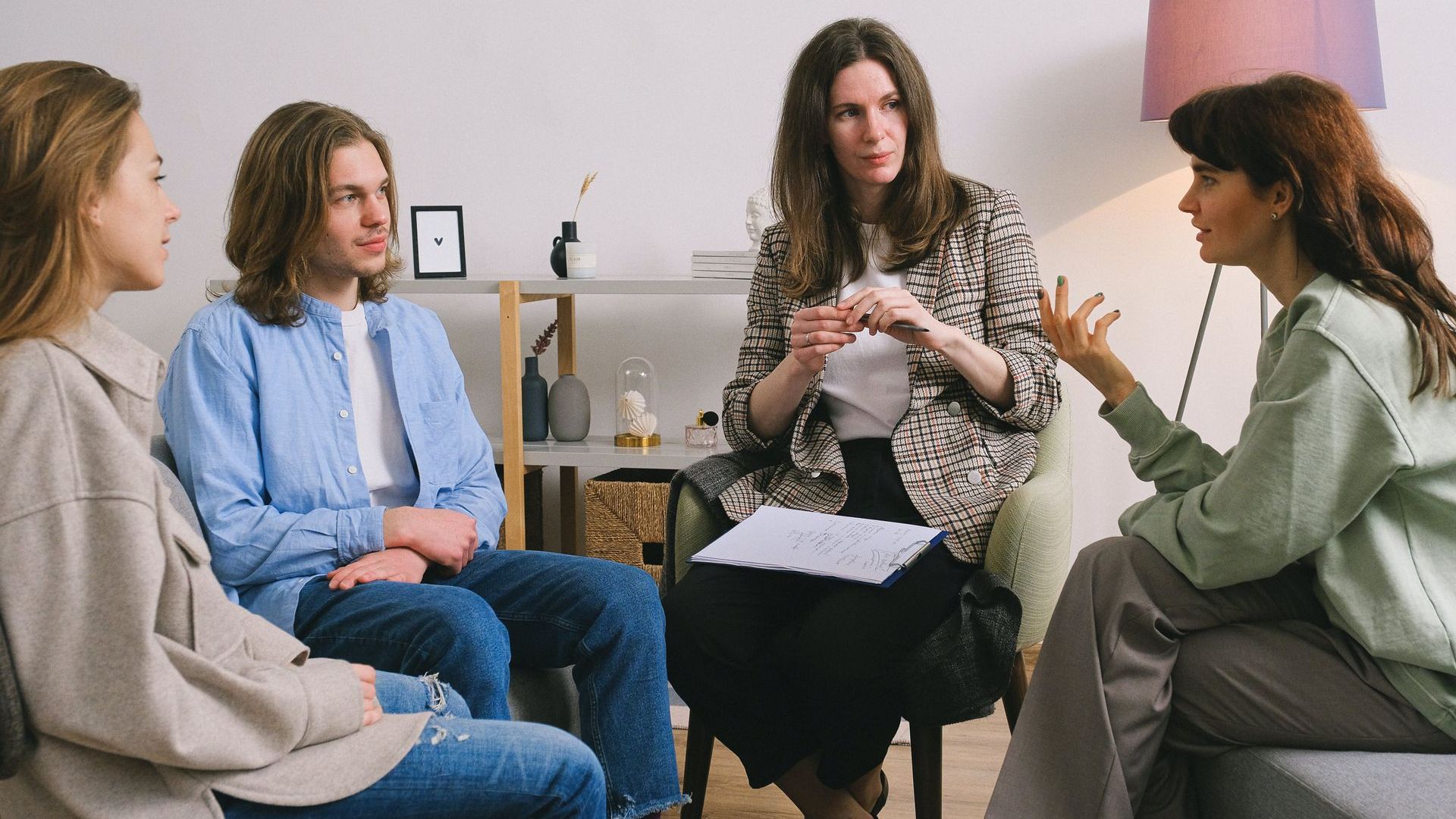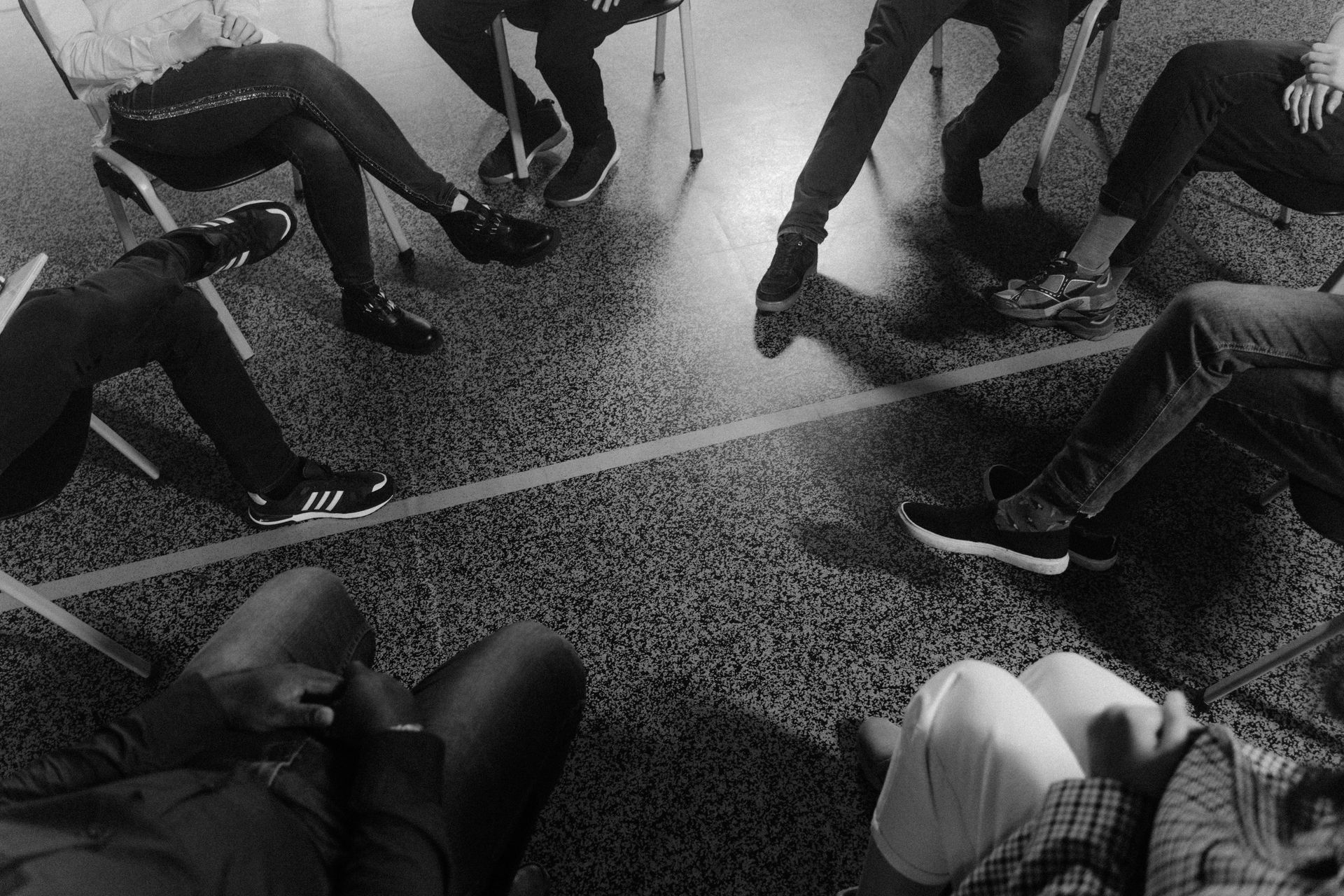Are Group Sessions Required for Recovery?

Are Group Sessions Required for Recovery?
When people think of recovery, they often think of a group of strangers sitting in a circle discussing their disorders and working through steps to alleviate these conditions. While group sessions do work for some, for others, these settings make it extremely challenging to open up and receive the help they need.
You may be wondering if group sessions are required for recovery. The information below addresses whether group sessions are required for behavioral and/or mental health treatment, along with what other options may be available and how in-home treatment may be an excellent option to meet your individual recovery needs.
“Treatment As Usual” and Group Sessions
Many treatment programs around the United States are built around a group sessions approach. Whether it be 12-step programs outside of a professional, therapeutic environment, or treatment centers, the treatment often revolves around patients recovering with their peers. While this is nice in theory, in practice it can cause a few issues and can sometimes get in the way of a patient’s recovery.
One issue with group sessions is privacy. While there is supposed to be a level of anonymity in group settings, there is always the risk of a person in recovery running into someone they know and the word getting out. This includes group sessions at rehabilitation centers.
Another problem patients run into is opening up in front of strangers. While some people find it cathartic and helpful to share amongst peers, others find the idea terrifying. This can lead to the person in recovery staying silent and not receiving the care they need.
Finally, there is the matter of shared time. If there is an hour long group session and three of four patients regularly take up the time allotted for ten patients, it can be extremely difficult for the other individuals to receive the extent of care they need and deserve.
Again, this is not to say group sessions are not valuable. Many people find a lot of value in group therapy and 12-step meetings. With that said, it isn’t the only option, nor is it the best option for all patients.
The Individual Treatment Approach
Many people only know of group sessions as a form of treatment for behavioral health conditions. They see 12-step meetings on TV and group therapy on the websites for recovery centers. Because of this, there is a notion that group therapy is required for recovery. This simply isn’t the case.
Many patients recover successfully without ever attending a group session or 12-step meeting. The trick is to receive care from treatment providers who excel in individualized care for those with behavioral health, substance use, and mental health conditions.
Front Door Health In-Home Treatment Benefits
Front Door Health employs some of the best treatment providers in the Chicagoland area, and we offer individual, at-home care for our patients. Below are some of the wonderful benefits of receiving the at-home care provided by Front Door Health…
No Group Sessions
With Front Door Health, there are no required group sessions to attend. Instead, we focus on treating the individual and creating a treatment plan to meet your specific needs. No two people are the same, which is why all of our treatment plans are customized for our patients.
No group sessions means more time for you. You will receive one hundred percent of our attention during each visit. No need to fight for time, open up in front of strangers, or risk a breach of privacy.
Treatment on Your Terms
Front Door Health provides concierge, judgment-free in-home treatment for patients when they need it. We understand that it can be difficult to put your life on hold and take time off work. Our in-home treatment allows you to continue to meet your work, school, family, and other obligations while receiving the treatment you deserve.
You let us know when you are available, and we will work around your schedule to provide you with top-tier care.
Treatment in the “Real World”
While inpatient and even outpatient treatment allows patients to remove themselves from temptations and other issues that come with a “real world” environment, it also is a double-edged sword. While the patient can focus on their recovery without distractions, they will also be hit that much harder by the “real world” when they leave recovery. This is especially so for inpatient treatment.
Front Door Health provides treatment in a “real-world” setting, exposing you to everyday challenges. However, unlike typical recovery centers, you benefit from the continuous guidance and support of our skilled mental and behavioral health professionals to help you overcome these obstacles.
Family Care
One major advantage of in-home treatment is how easy it is to schedule and attend family care sessions. When it comes to traditional treatment centers, patients are often left working around the schedule of the center and/or waiting for family days to receive family treatment.
As behavioral, substance use, and mental health conditions affect the whole family, family treatment sessions can be beneficial. With that said, with the “treatment as usual” approach, they can be very difficult to schedule and attend. With in-home treatment, family sessions can be booked around the schedule of the patient and their family.
This means your family can get the support needed to grow and heal without the pressure of meeting very specific time slots.
Reach Out Today
If you are in need of behavioral health, substance use, or mental health treatment services and would like to receive those services around your schedule, from the comfort of your own home, reach out to Front Door Health today. We’re happy to answer any questions and provide you with the help you need.
info@frontdoorhealthcenter.com



